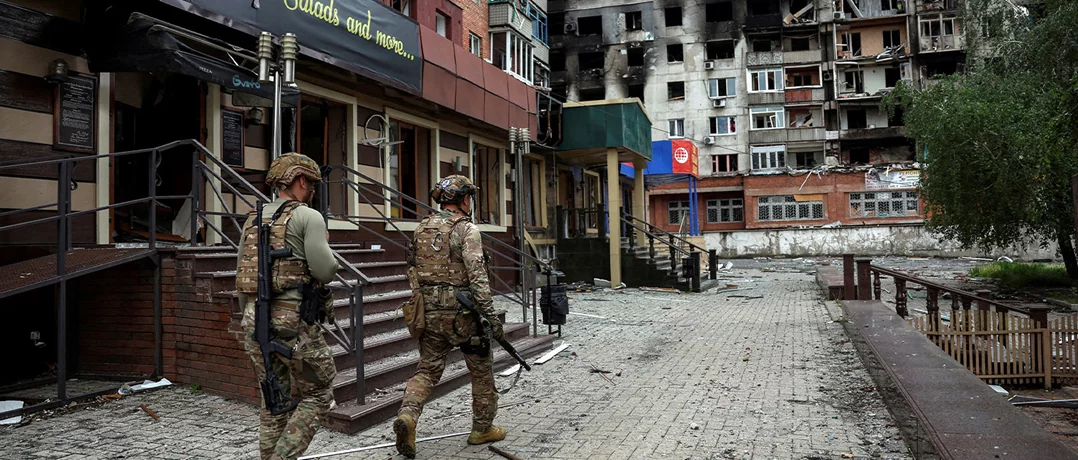The city’s fate impacts military logistics, national morale, and broader diplomatic negotiations between Kyiv and Moscow.
The significance of the battle of Pokrovsk to Moscow and Kyiv
The significance of the battle of Pokrovsk to Moscow and Kyiv


The significance of the battle of Pokrovsk to Moscow and Kyiv
The eastern Ukrainian city of Pokrovsk has become the latest focal point in a war that has reshaped Europe’s security landscape for nearly 4 years. Once a quiet industrial hub in the Donetsk region, Pokrovsk now stands at the center of a grinding struggle that could determine the balance of power across eastern Ukraine.
Both sides recognize its strategic value For Russia, capturing the city would mark a decisive step toward dominating the Donbas region. As for Ukraine, holding it is vital to protecting its supply lines, defending its heartland, and maintaining national morale.
As the battle intensifies, Ukraine may be on the brink of suffering its most significant setback in months. The outcome in Pokrovsk could have devastating consequences, shaping not only the military trajectory of the conflict, but also the political and diplomatic pressures surrounding it.
Why Pokrovsk matters strategically
Pokrovsk’s significance lies in its geography, infrastructure, and industrial proximity.
For Russia:
Following the Russian capture of Avdiivka in early 2024, the region became Moscow’s next major target in Donetsk. Despite slow progress, Russian forces have steadily pressed toward the city.
If Pokrovsk were to fall, it would bring Russian President Vladimir Putin closer to his goal of occupying the entire Donbas region. The capture would not only mark a psychological win but would also open a pathway toward other Ukrainian strongholds, including Myrnohrad, Kostyantynivka, and the strategic “fortress belt” cities of Druzhkivka, Kramatorsk, and Slovyansk (all key to Ukraine’s eastern defense network).
For Ukraine:
Holding Pokrovsk is essential for both strategic and logistical reasons. Prior to the war, the city had a population of around 60,000 and sat near Ukraine’s only active coking coal mine, a critical asset for the steel industry. Though coal production has ceased and most residents have been evacuated, Pokrovsk remains a transport hub that connects eastern Ukraine to central regions via major highways and railways. Losing this junction could expose deeper Ukrainian territory, particularly the Dnipropetrovsk region, to renewed Russian offensives.
Russian forces are reportedly moving closer to the main road leading to Pavlohrad and Dnipro, while advancing southwest near the border with Dnipropetrovsk. Another key route extends toward Zaporizhzhia, a region Russia also claims as part of its occupied territories. The fall of Pokrovsk would thus create a logistical bridge enabling further Russian advances into central and southern Ukraine.
Implications for the broader war
The potential loss of Pokrovsk would not automatically mean the fall of the entire Donetsk region, but it would mark a serious setback for Ukraine’s military and morale.
Putin has reportedly made the complete surrender of Donetsk one of his core conditions for ending the conflict. Yet, Ukrainian President Volodymyr Zelensky maintains that Russia would need years of continued fighting to achieve full control over Donbas; a view supported by analysts at the Institute for the Study of War, who argue that Russia has no means of “rapidly enveloping or penetrating the fortress belt.”
Nevertheless, the psychological and political impact of losing Pokrovsk could be significant. As winter approaches, the fall of the city would strain Ukraine’s resources and diminish public confidence. It could also influence international diplomacy, particularly amid renewed US efforts to bring an end to the war.
US President Donald Trump, who has pushed for a negotiated settlement, has previously dismissed Russia as a “paper tiger.” A Russian victory in Pokrovsk could shift that perception, strengthening Moscow’s bargaining position in any future talks. Although recent attempts to organize a Trump-Putin summit have stalled, Russian officials reportedly hope that new battlefield successes could revive the possibility of a deal on their terms.
In short, Pokrovsk is far more than another embattled city. Its fate may shape not only the next phase of the war in eastern Ukraine but also the diplomatic and psychological dimensions of the conflict itself.


